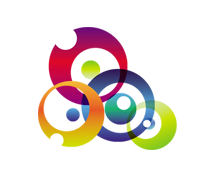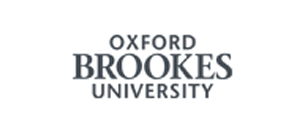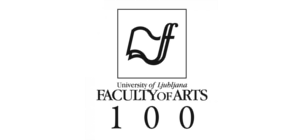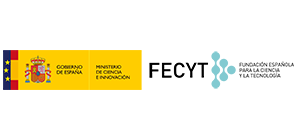General information
We use cookies to facilitate the use of our website.
Cookies allow us to know how our users navigate through our website and, in this way, to help them during the browsing process by showing them the
information of interest.
The cookies we use do not store personal data or any information that may identify you, as provided by the Organic Law on Data Protection.
If you do not wish to receive cookies from this website, you can change your web browser settings so that you can delete them from your computer's hard drive, block them or you will be notified when any website tries to send you a cookie.
If you continue to browse our website without changing your cookie settings, we will presume that you are happy to receive this cookie from our website.
What are cookies?
A cookie is a file that is downloaded to your computer when you access certain websites.
Cookies allow a website, among other things, to store and retrieve information about the browsing habits of a user’s device and, depending on the information they contain and the way they use their equipment, they can be used to recognise that user.
How are cookies used?
Cookies can only store text. It is usually anonymous and encrypted.
No personal information will be stored in a cookie. Cookies cannot be related to
personally identifiable information or even unique identifiers.
What type of cookies do we use?
This website uses the following types of cookies:
1. Types of cookies according to the entity that manages them:
Depending on the entity that manages the device or domain that sends the cookies and processes the data obtained, the type of cookies that we use are:
- Own cookies: These cookies are sent to the user's device from a server or domain managed by the website editor and from the provider of the service requested by the user.
- Third party cookies: These cookies are sent to the user’s device from a server or domain that is not managed by the website editor but by another entity that processes the data obtained through the cookies.
In the case of cookies installed from a server or domain managed by the website editor, but the information they collect is managed by a third party, these cannot be considered own cookies.
2. Types of cookies according to the period of time they are activated:
According to the period of time they remain activated on the user’s device the cookies that we use are:
- Session cookies: These cookies are designed to collect and store data while the user accesses a website. These are usually used to collect information that is only stored to provide the service requested by the user in a single session.
- Persistent cookies: These a type of cookies in which the data remain on a user's device for a set period of time specified in the cookie by the owner of the cookie, which can range from a few minutes to several
years.
3. Types of cookies according to their purpose:
According to the purpose for which the data obtained through the cookies are processed, cookies can be grouped as follows:
- Technical cookies: These cookies allow users to navigate through a website, platform or application and the use of different options or services that exist in it, such as controlling traffic and data communication, identifying the session, accessing restricted access parts, remember the elements that make up an order, perform the purchase process of an order, make the request for registration or participation in an event, use security elements during navigation, store content for broadcasting videos or sound or share content through social networks.
- Personalisation cookies: These are those that allow users to access the service with some predefined general characteristics based on a series of criteria in the user’s device such as the language, the type of browser through which they access the service, the regional configuration from which you access the service, etc.
- Analysis cookies: These cookies allow the owner of the cookies to perform the monitoring and analysis of users’ behaviour on the various websites to which they are related. The information collected through this type of cookies is used to perform the measurement of navigation on the website, application or platform of the use made by users of those websites, applications and platforms in order to improve the services based on the analysis of the data made by users.
- Advertising cookies: Advertising cookies are those which enable us to manage the advertising space the editor may have included on the website, application or platform from which it provides the requested service as efficiently as possible, based on criteria such as the edited content or the frequency with which advertisements are displayed.
- Behavioural advertising cookies: These enable the most efficient management possible of advertising space included by the editor on the website, application or platform where it provides the service requested. These cookies store information about user behaviour obtained by continuous observation of its browsing habits, enabling us to develop a specific profile and to tailor the advertising you are shown based on this.
4. Collection of pseudo-anonymous identifiers
A pseudo-anonymous identifier is one that, although it does not show users’ personal information, allows to identify them through a match in an external data source. An analytical implementation can include the following:
- User ID – Alphanumeric identifier of a database or CRM. It must never include a text string that allows to identify a user: email, username, etc.
- Hashed or encrypted personal information - Google Analytics requires an SHA256 hash and recommends using a salt (random value that converts the one-way encryption process) of at least 8 characters.
- Transaction IDs – A transaction ID helps us to access any personal information of the person or company that made it.
This website uses its own and/or third-party cookies:
| Type of Cookie | Duration | Purpose |
|---|---|---|
| It is activated during login and saves the authentication details. | ||
| wordpress_logged_in_ | It is activated during login and saves the authentication details. | |
| wordpress_test_cookie | It is activated during login and saves the authentication details. | |
| wp-settings- | Up to 1 year | Used to customize the User Interface. |
| wp-settings-time- | Used to customize the User Interface. | |
| vchideactivationmsg_vc11 | Session end | Used to manage forms in website |
| moove_gdpr_popup | Up to 1 year | Used to show cookies compliance messages |
Cookie Management Tool
This website uses Google Analytics.
Google Analytics is a free Google website analysis tool that helps website owners measure how users interact with their website. It also enables cookies in the domain of the site where you are and uses a set of cookies called "__utma" and "__utmz" to collect information anonymously and reports website trends without identifying individual users.
We use cookies to compile statistics of website use to know how often our visitors visit our website and which pages they find most interesting.
In this way, we can focus on improving the most visited pages and help users to find what they are looking for more easily.
This website can use the information on your visit to make assessments and statistical calculations on anonymous data as well as to ensure continuity of the service or make website improvements.
Please click on the following link to view the privacy policy [http://www.google.com/intl/es/policies/privacy/]
How to manage cookies on your computer: Disabling and deleting cookies
All Internet browsers allow you to limit cookie behaviour or disable cookies within the browser settings or options.
The steps to do it are different on each browser. You can find instructions on the help menu on your browser.
If you do not accept the use of cookies, you can reject them using the preference or settings menus on your browser. This website will continue working properly without them.
You can allow, block or delete the cookies installed on your computer by changing the settings on your computer browser.
You can see the cookies stored on your computer on your browser and delete them if you wish so.
Cookies are text files; you can open them and see their content. The data contained in them are nearly always encrypted with a numeric key corresponding to an Internet session.
Informed consent
The use of this website implies that you give your express and unequivocal consent to the use of cookies, under the terms and conditions set forth in this Cookies Policy, without prejudice to the measures to disable and eliminate cookies you may take and that are mentioned in the previous section.










